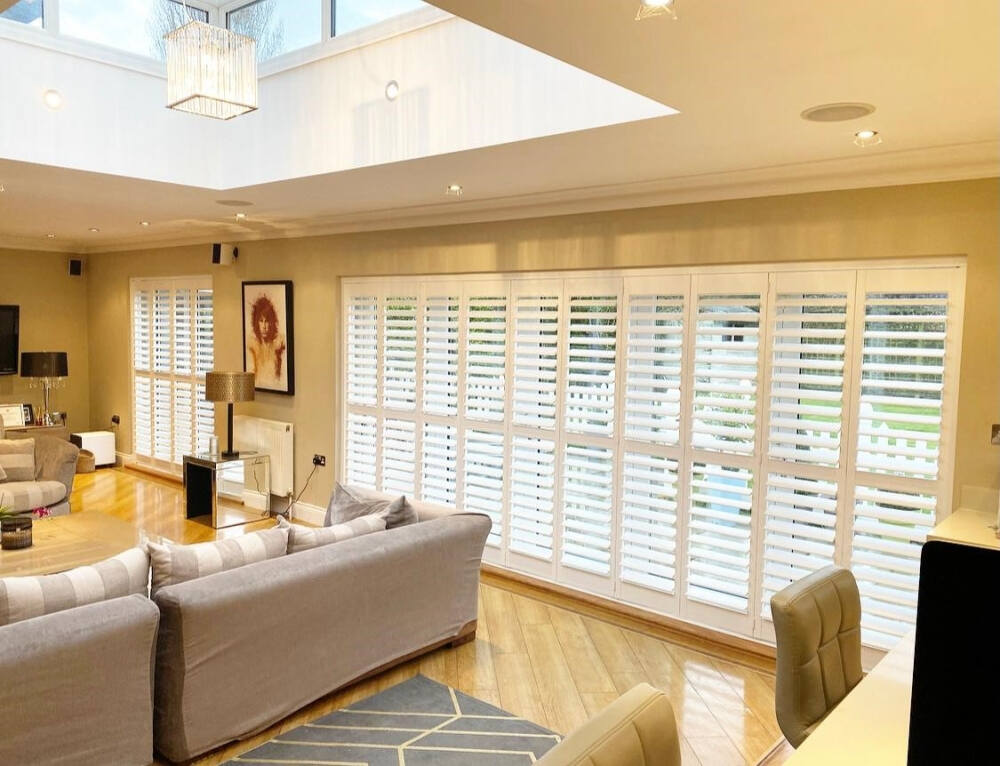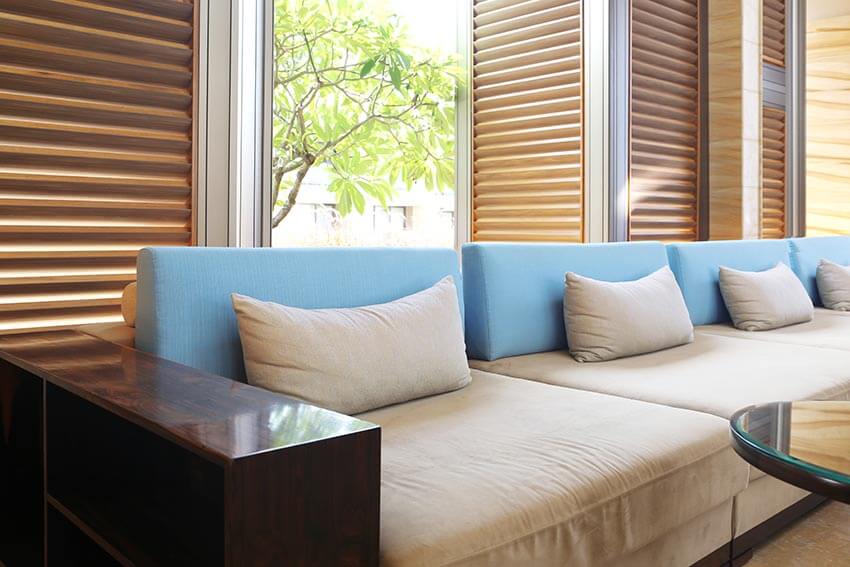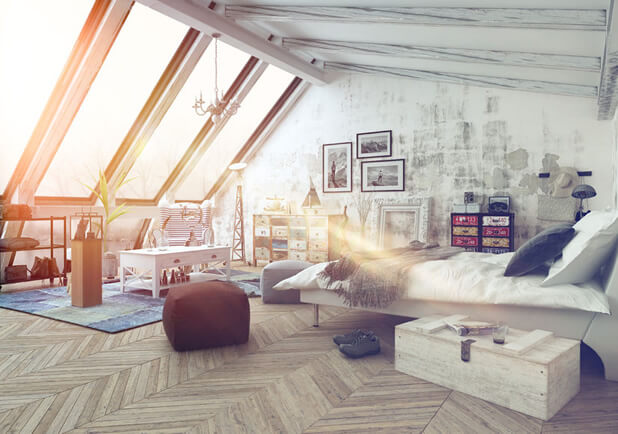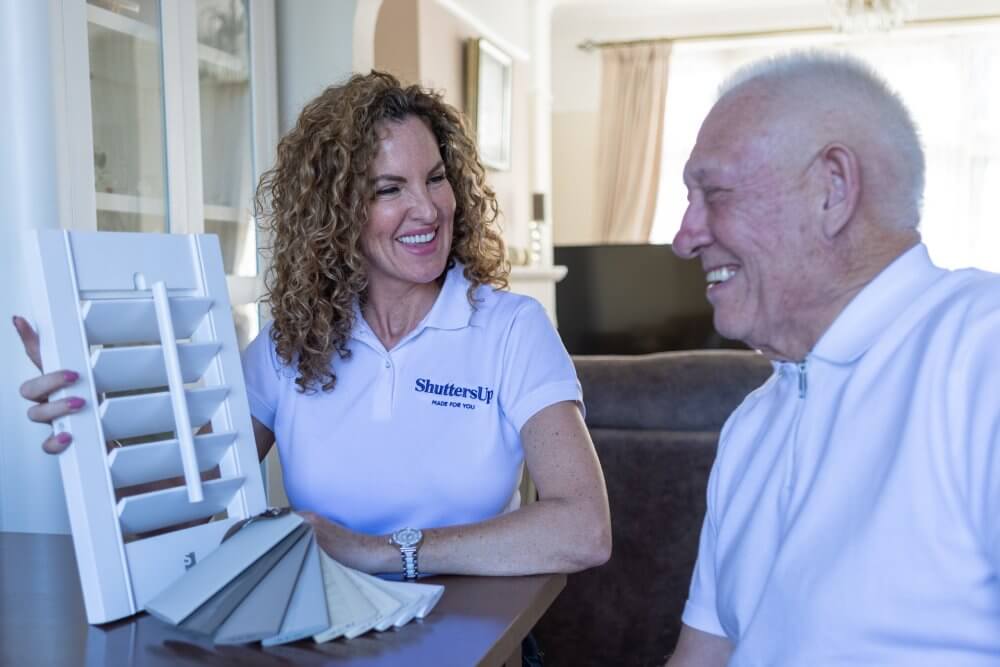What is the best solution for condensation?
Condensation on our windows looks harmless but if it is allowed to build up and mould begins to form it can be problematic to both your home and your health. Condensation occurs when humid air encounters cold surfaces such as wall and windows. Remember that science lesson now? When the vapour in the air becomes cold it transforms back into a liquid, hence why condensation shows itself in the form of tiny droplets of water, often most noticeable on our windows in the morning when the air outside is at its coolest.
Now we understand the cause of condensation, it is clear that the best solutions for condensation are heating (to keep susceptible surfaces above dew point temperature) and ventilation (to expel the warm, moisture-laden air to the outside).
The cures for condensation are heating (to keep surfaces above dew point temperature) and ventilation (to drive out the warm, moisture-ridden air to the outside).
Do shutters prevent condensation?
During winter, it is unlikely that window shutters will completely stop any condensation forming as the air outside will always be much cooler than the air inside your home. However, shutters are the perfect window dressing to significantly reduce the amount of condensation that forms and prevent it from festering into a problem, even in wetter rooms like kitchens and bathrooms.
As we have already established, one of the main ways to avoid condensation on and around your windows is to ensure your home is adequately ventilated. The best way to achieve this is to open the windows regularly. The moveable slats on shutters allow you to have the windows open enough to allow a trickle of air into your home without a full-blown draught blowing in (as with curtains and blinds). You can adjust the slats to suit your preferred breeze level!
Plus, shutters do not suffer from mould-growth like curtains and blinds do and are easy to wipe down and maintain. Our wooden shutters are not affected in any way by moisture or heat because we source our shutters from a manufacturer who treats their timber to help prevent warping and swelling. In fact, the wood in our shutters is dried to match the conditions of its final location to ensure it lasts longer. The British weather will never pose a problem no matter how unpredictable it is!
What about extra damp rooms?
There are certain rooms in a house that are more prone to condensation than others. Cooking and showering being the biggest culprits. The moisture created from boiling water when cooking on the hob, or a load of moisture-laden washing drying on the airer in the corner of the room will all add to a kitchen’s moisture content. Similarly, the steam from showering will add to the amount of condensation that appears on your bathroom windows and walls.
Our kitchen shutters and shutters in the bathroom are such a great solution. We have fitted shutters in all kinds of rooms, from kitchens, bathrooms, wet rooms, and houseboats, to pool houses and caravans. While our wooden shutters cope superbly with condensation, if you are concerned about excessive moisture levels in a room, you can always opt for our waterproof shutters. Our Java shutters are manufactured with a hardwood core and finished with a hard-wearing ABS plastic coating, making them 100% water resistant and perfect for wet rooms, bathrooms, and kitchens where condensation could otherwise cause a problem.
ABS plastic has a resistance to corrosive chemicals and physical impacts and is far superior and far stronger than PVC plastic, which is commonly used by other shutter suppliers. We are so confident in their durability and ability to resist water that our Java shutters (as with all our shutter ranges) come with a 15 year warranty as standard.
Other easy to implement condensation solutions
Aside from opening the windows when the weather permits, other ways to keep condensation to a minimum include:
- Ensure your washing machine/tumble dryer is correctly vented.
- Dry clothes outside or if this is not possible keep them in a bathroom with the door closed and the windows open until the clothes are dry. Alternatively, a heated dryer will help reduce the amount of moisture released into the air and speed up the drying process.
- Close doors to rooms with high moisture content. For example, when you take a shower, ensure the bathroom door is closed to stop the moisture spreading to other rooms in the house. Open the window/turn on the extractor fan so the moisture can be expelled quickly.
- Invest in an extractor fan which is a great alternative to opening a window when it is cold outside.
- Pop lids on pans when cooking on the hob to prevent steam getting into the air.
- Move furniture away from external walls to allow air to circulate more effectively around your room.
- Install double glazing, loft & wall insulation Effective insulation will help keep the temperature of the surfaces inside your home higher and well above that dew point. You will benefit from a warmer, energy-efficient home and lower heating bills. Shutters will help with this too as they act as another insulative barrier to reducing heat loss.
Don’t forget, condensation on the inside of your windows is the problem, not the outside. Condensation on the outside of our windows is normal and is actually an indicator that your double glazing is highly energy efficient, keeping the warm air in your home and stopping it from falling to the same conditions that are causing condensation to occur.
Still not convinced?
Check out the other reasons why window shutters are the best home improvement you will make for wintertime and see what our customers have to say on the matter!
Related articles
Can You Have Plantation Shutters On Sliding Doors?
Picking the right Shutters
For all your shutter inspiration
Get in touch to arrange your quote
We’ll be happy to pay you a visit so we can offer tailored, personal advice about all your shutter options.





